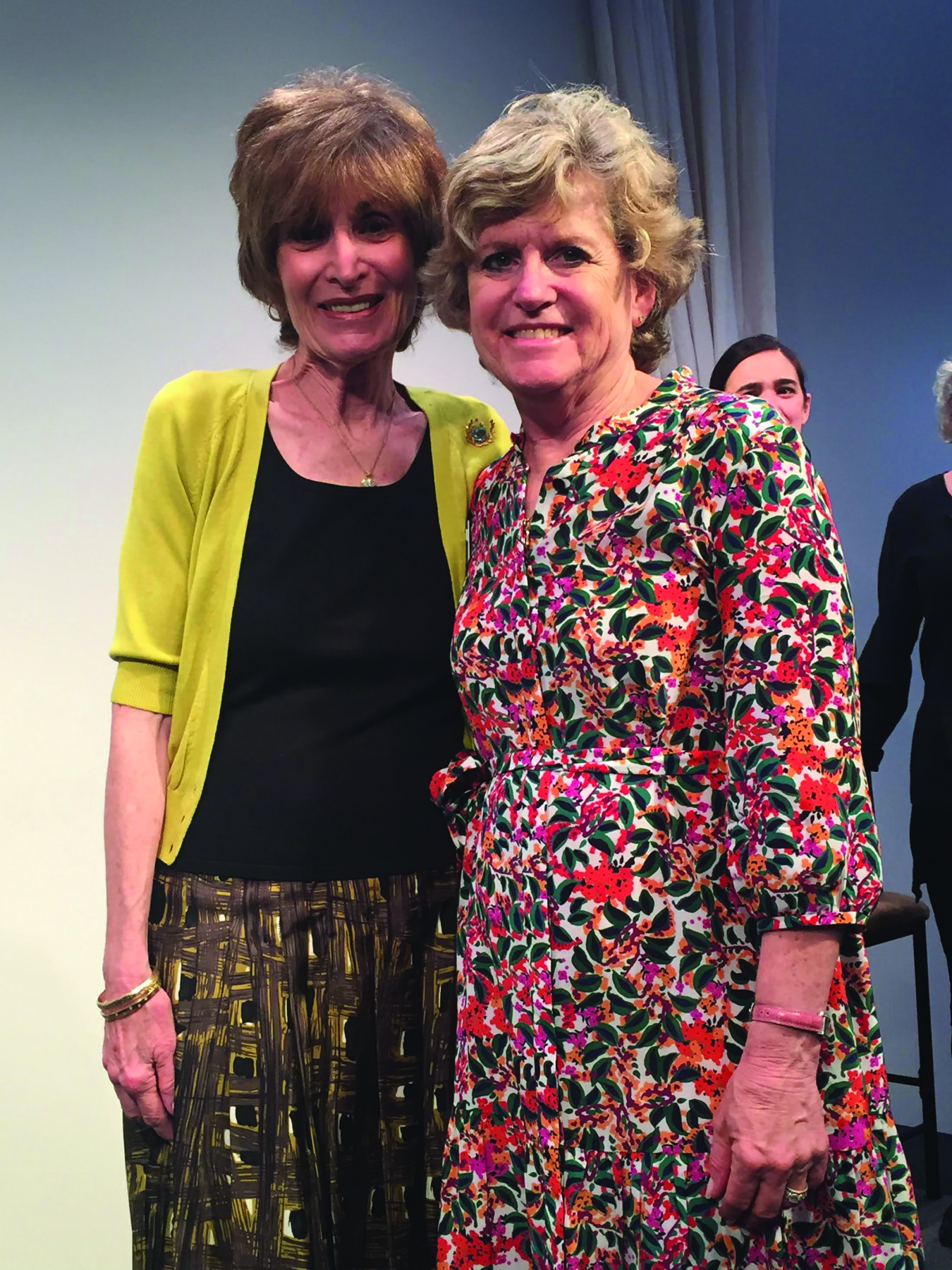
To most, condensing over 100 years of history into a one-hour theatrical performance would seem impossible. To Sharon Krischer, the prospect sounded like an opportunity.
Krischer, who lives in Beverly Hills, served as Southern California regional president for Hadassah, the Women’s Zionist Organization of America, from 2001 until 2003. The volunteer organization was founded over a century ago with more than 300,000 members nationwide in chapters across major American cities.
Five years ago, Krischer picked up a copy of “Thin Threads,” a published compilation of personal stories written by Hadassah members over the years. “I was endlessly fascinated by what I was reading,” she said. “I felt that dramatizing the stories would make even more of an impact and make the content that much more relevant.”
A frequent patron of Jewish Women’s Theatre (JWT), a Santa Monica-based theater company dedicated to giving Jewish women a voice onstage, Krischer approached its founder and artistic director, Ronda Spinak, a longtime Hadassah member, with a proposal: Staging a performance of selected “Thin Threads” stories. She explained to Spinak that she saw it as a marketing and fundraising tool for the organization that could engage and educate both existing and prospective members in a new, innovative way.
“Luckily, [Spinak] was enthusiastic from the beginning,” Krischer said.
Krischer, along with Sandi Sadikoff, another former Hadassah Southern California regional president, worked closely with Spinak to search for, select and edit stories from “Thin Threads,” developing them for the stage. However, with many of the stories being quite short, Spinak suggested expanding the search to include pieces from Hadassah Magazine, the organization’s bimonthly publication.
“We hope this exposes a younger generation of women to the breadth of experiences of the amazing women who came before them and inspires them to follow in their footsteps.” — Hazel Gordon
During a trip to New York, Spinak received permission from the magazine’s editorial staff to cull through its archives. After spending the better part of two full days dusting off decades-old stories, she left with sets of photocopies and a deep appreciation for the stories she came across.
“You could do 10 shows with the treasure trove that is the archive,” she said. “The thing that struck me most is the commitment of tzedakah, the commitment to doing good in the world, and how that is a 100-year history and legacy that Hadassah has created. To be able to unearth some of those little-known stories and to share them has been a joy.”
One of the stories she found, “Keeping a Promise,” tells the tale of Henrietta Szold, the founder of Hadassah, picking out her grave on the Mount of Olives in Jerusalem and the young Muslim undertaker sworn to protect it after it fell to ruins during the War of Independence of 1948.
“Many Hadassah stories are intertwined with Israel’s story,” Spinak said.
Other stories Spinak and company settled on cover ground like the work of “medical clowns” that entertain hospitalized children at Hadassah Medical Center in Jerusalem, and discovering pride in Zionism through Hadassah membership after fleeing persecution in Muslim countries like Iran.
Soon after Krischer, Sadikoff and Spinak finished collecting and editing stories, the estate of Lily Rosman, a lifelong Hadassah member, and the Ladies of Finesse, a group of Hadassah donors, graciously agreed to underwrite “Hadassah on Stage.” It has already been performed four times with JWT casts. Last year, JWT staged performances at a Hadassah conference in Arizona and at a synagogue in Santa Ana for Southern California regional members. This year, shows took place at the Luxe Sunset Boulevard Hotel in Brentwood in April and at JWT’s home, The Braid, in Santa Monica on May 31.
“There’s a lot of recognition for audiences when they’re seeing this,” Spinak said. “People recognize themselves and their own Hadassah work and experiences in these stories.”
One of the main goals of staging the show, according to Hazel Gordon, the Los Angeles Metro area manager for Hadassah, is to foster a new generation of Hadassah members.
“We hope this exposes a younger generation of women to the breadth of experiences of the amazing women who came before them and inspires them to follow in their footsteps,” Gordon said.
Another key part of the initiative, Gordon said, is to put Zionism, which she said has become a “loaded word” for many young people, front and center in hopes of encouraging young prospective members to “not shy away from their Zionism” in public spaces.
The creative team behind “Hadassah on Stage” has written guidelines instructing how to stage different iterations of the show with varying lengths and content.
“Essentially, any chapter can design their own show based on their needs with different stories,” Spinak said. “They can design one that speaks to a younger audience, an older audience or a Sephardic audience.”
But Krischer insisted it’s the elusive younger audience, the millennials, that chapters in and around Southern California and beyond will continue to try to lure.
“Like every organization out there, we’re hoping this type of venture can keep us relevant and bring in millennials in a way that speaks to them,” she said. “We’re trying something different.”




















 More news and opinions than at a Shabbat dinner, right in your inbox.
More news and opinions than at a Shabbat dinner, right in your inbox.